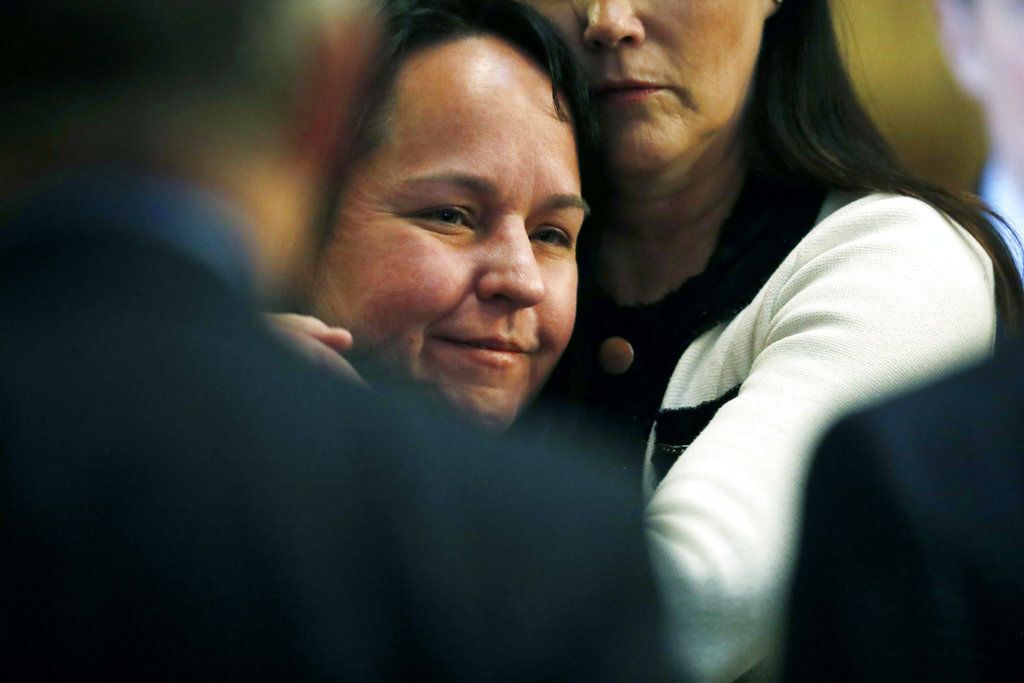Colorado Parks and Wildlife to get more wolves from Canada
With no state in the American West willing to give Colorado access to wolves, Colorado Parks and Wildlife has now gone international.
The state agency announced Friday that the next set of wolves to be brought to Colorado will come from British Columbia.
Meanwhile, an association of livestock growers asked wildlife officials to be more cautious about where they releases the next pack of wolves.
The state said it secured the agreement with the British Columbia Ministry of Water, Lands and Resource Stewardship.
The Canadian province will be a source for up to 15 wolves for the Colorado gray wolf reintroduction effort for this upcoming winter, officials said. These wolves will be captured and translocated between December 2024 and March 2025.
“We are grateful to the B.C. Ministry of Water, Lands and Resource Stewardship for working with our agency on this critical next step in reintroducing gray wolves in the state,” said Colorado Parks and Wildlife Director Jeff Davis. “Their willingness and ability to work with another jurisdiction to support our conservation priorities, as they have in past translocation efforts, demonstrates their long-shared commitment to seeing this species succeed.”
Colorado will be responsible for all costs associated with capturing and transporting wolves. Wildlife officials did not reveal in their recent first annual report how much the state spent to transport the wolves from Oregon to Colorado.
“We learned a great deal from last year’s successful capture and transport efforts and will apply those lessons this year as we work to establish a self-sustaining wolf population in Colorado,” said CPW Wolf Conservation Program Manager Eric Odell.
The statement did not include any lessons learned from the communication failures that occurred during the wolf release.
British Columbia has been “culling” its wolf population since 2015, due to “damage and disruption to caribou habitat [that has] resulted in population declines, most notably in woodland caribou,” said the British Columbia Society for the Prevention of Cruelty to Animals. That has included lethal management.
Wolves in British Columbia are also a risk to moose, according to the British Columbia Society for the Prevention of Cruelty to Animals.
Several sources said more than 2,200 wolves have been killed by the Canadian province since 2015, and as many as 8,000 have been killed by both the government and hunters.
Colorado Parks and Wildlife said it would not translocate wolves that are from packs that are currently involved in situations of repeated livestock depredations.
The agency made that same promise last year, but many of the Oregon wolves brought to Colorado came from packs with a history of chronic depredation. Once relocated to Colorado, those wolves were responsible for the killings of dozens of sheep, cattle and working dogs, primarily in Grand County.
“We are looking forward to working with B.C. and bringing together our combined experience and expertise in an effort that’s a win for both agencies,” Odell said. “Gray wolves from the Canadian Rockies were used for reintroduction in Idaho and Yellowstone. There are no biological differences between wolves in British Columbia and the wolves released in Colorado last year, and the new source population will provide additional genetic diversity to our state’s small but growing wolf population.”
Defenders of Wildlife — which backs the reintroduction program and argued that restoring wolves to Colorado will “biodiversity to the iconic landscapes of the southern Rockies and “reconnect wolf populations from Mexico to the Arctic” — cheered the news.
“Today’s announcement is a timely reaffirmation of CPW’s commitment to wolf recovery,” said Michael Saul, the organization’s Rockies and Plains program director. “To help ensure these wolves have the best chance at successful reintroduction, CPW must act on lessons learned from this year, specifically, prioritizing rules requiring all agency-recommended nonlethal conflict measures be exhausted before considering any lethal removal or relocation of wolves.”
Saul added: “When employed correctly, appropriate nonlethal tools and strategies can effectively minimize wolf-livestock conflicts and prevent relocation or lethal removal.”
Wildlife officials have struggled to find states that would allow their wolves to come to Colorado.
Last year, Idaho, Montana and Wyoming turned the the agency down. The Colville Tribes of Washington State had agreed to allow wolves on their lands to come to Colorado at the end of this year, but that agreement was rescinded because of poor communication between CPW and the Southern Ute and Ute Mountain Ute tribes, which do not want gray wolves on their lands.
Also on Friday, Middle Park Stockgrowers thanked CPW for removing six wolves believed to be responsible for killing livestock in Grand County. The six, a mating pair and four pups, were captured in late August and early September. The male of the pair died several days later from injuries unrelated to the capture, officials said.
CPW has said it would release the pups when they are fully grown, but that raises concerns for Middle Park ranchers, who believe the pups were already learning to kill livestock from their parents.
“The relief CPW’s actions provided to livestock producers in the Williams Fork Valley will be short lived if the agency does not learn from its mistakes and take proactive measures to prevent this situation from reoccurring,” wrote Middle Park President Tim Ritschard.
The agency has stated it intends to release the next group of wolves in Colorado’s Northern Zone, the same location it released the first batch of wolves last December.
“We have learned from experienced professionals familiar with wolf behavior and movement that wolves follow the same trails for extended periods of time,” the letter stated. “We have been advised that it is likely—if not certain—that future wolves will follow the trails of the Copper Creek pack and re-establish themselves in the Williams Fork Valley in a matter of two to three years.”
Releasing the female from the Copper Creek pack would be a mistake, since even CPW acknowledged she was responsible for at least three depredation events and possibly responsible for another 20 or more sheep killed in July. (CPW has not confirmed any of those reported killings).
The letter stated that CPW was incorrect when it said on Monday there was no evidence the four pups were involved in livestock depredations in Grand County. After one attack on a lamb in July, the rancher found fatal bites too big to come from a canine and too small to have come from an adult wolf, which the letter said was indicative of a wolf pup attack.
“The slaughter of these sheep was likely a training exercise for the pups in which they participated to learn to ‘hunt’ and kill livestock like their parents,” the letter said, and the pups have learned to equate the smell of sheep and cattle blood with food.
“To rebuild the crumbling trust between CPW and the state’s livestock producers, CPW must remain transparent in its decision-making process about the future of the remaining Copper Creek pack wolves,” the letter said.
The group also took CPW to task for failing to update its records on more recent attacks. The website has not been updated since July 28, and numerous depredations have taken place since.
Of the 10 wolves brought to Colorado last December, three have since died, including a wolf in Grand County this week.











